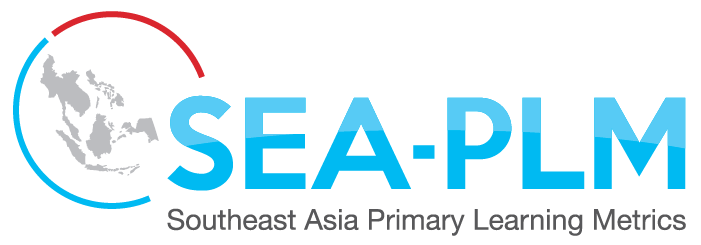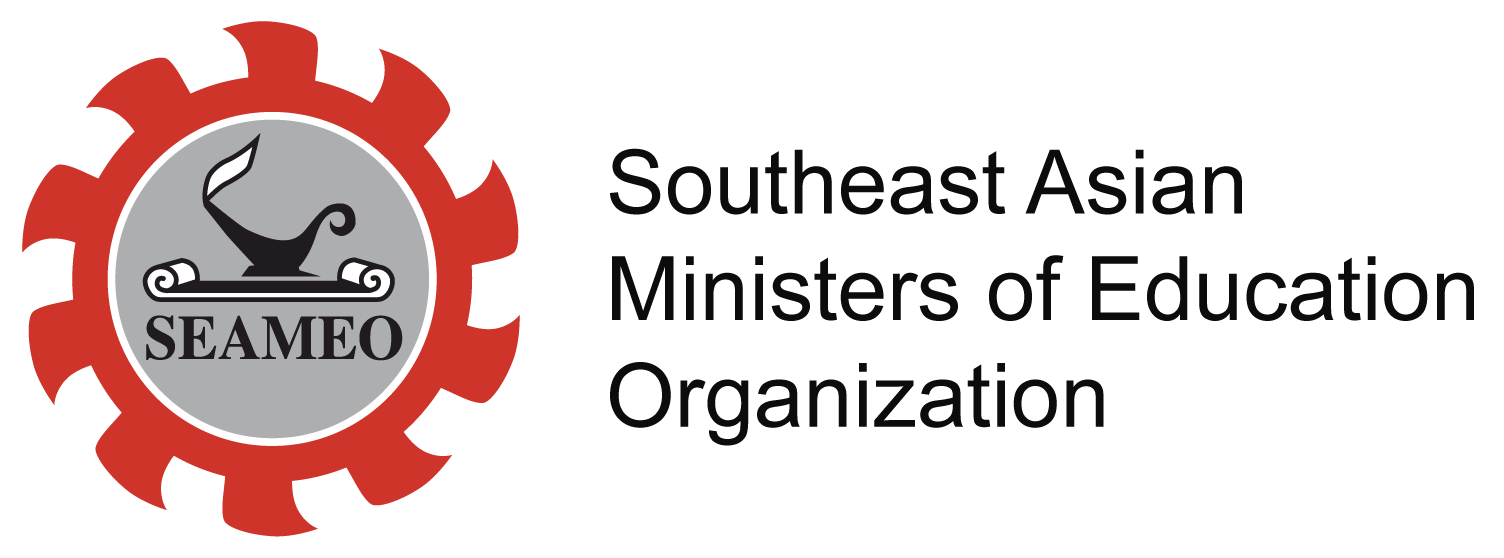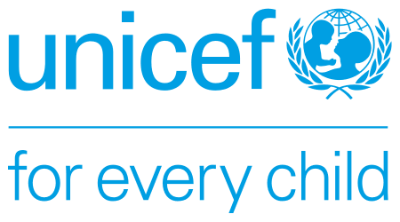
SEA-PLM Policy Brief on Advancing Global Citizenship Education in Southeast Asia (2024)
This report advances Global Citizenship Education building upon the utilization, engagement, and impact of the SEA-PLM 2019 key findings.
The report provides insight into the current status of GCED, including challenges such as teacher capacity, and highlights the varying approaches to integrating GCED across different education systems in the region.
Additionally, the report includes a policy brief summarizing the status of GCED in 2022–2023, as reported and documented by the central offices of seven Southeast Asian Ministries of Education participating in the SEA-PLM programme - Cambodia, Lao PDR, Malaysia, Myanmar, the Philippines, Thailand, and Viet Nam. The brief presents recommendations for advancing GCED implementation, emphasizing the need for comprehensive teacher training, resource allocation, and the utilization of data from the SEA-PLM programme to inform policy-making and educational practices. It also aims to capture their experiences SEA-PLM 2019 global citizenship concepts, tools, datasets, and findings.

What does SEA-PLM 2019 tell us about child well-being and
learning in six Southeast Asian countries? (2022)
This publication was developed by the United Nations Children’s Fund (UNICEF) Office of Research-Innocenti and published by UNICEF East Asia and Pacific Regional Office (EAPRO) as its contribution to the SEA-PLM Secretariat.
The COVID-19 pandemic presented an opportunity for governments across Southeast Asia to reshape their approach to education so that children and adolescents are equipped with the necessary academic and socioemotional skills to live a rewarding life. By providing deeper insight into children’s attitudes and values in well-being domains, this report reveals the relationship between children’s well-being and academic learning in the region.
What can policymakers and practitioners do to support children and adolescents to excel now and in the future? Through quantitative analysis of the Southeast Asia Primary Learning Metrics 2019 database, along with an investigation of policy implications and promising practices, this report advocates for increased coordination across cross-sectoral government institutions; increased school, parental and community support for children’s development; and providing a platform for children’s voices to understand their perspectives and needs.
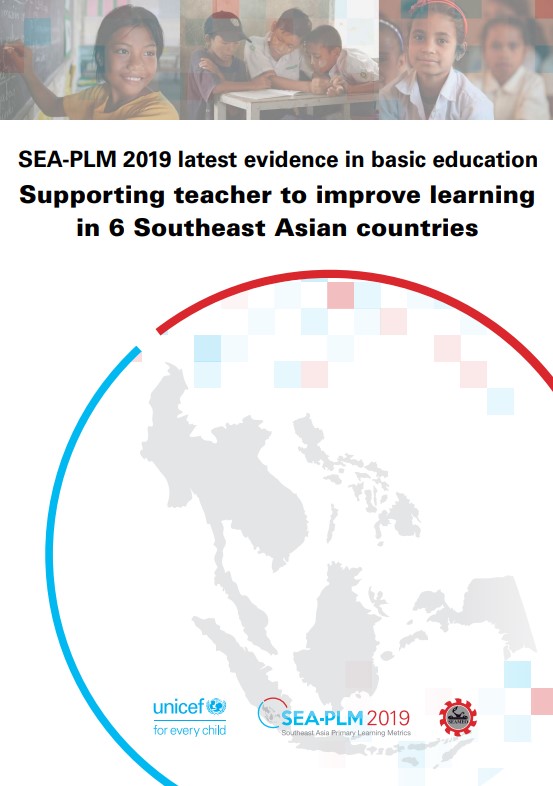
SEA-PLM 2019 latest evidence in basic education: Supporting teacher to improve learning in 6 Southeast Asian countries
This publication is the third in a series of regional thematic studies initiated by the SEA-PLM Secretariat—SEA-PLM 2019 latest evidence in basic education.
This paper highlights the diversity of the Southeast Asian teacher workforce, their classroom conditions, and their level of preparation and training upon entry to the profession. The analysis illustrates the qualification and requirements for teachers, challenges faced in the classroom, and the training provided based on SEA-PLM 2019 data.
This paper offers potential solutions to prepare teachers to improve student learning effectively. It recommends the development and implementation of policies and programs to strengthen the teacher workforce and redirect the focus to ensure teachers have supportive working conditions, and comprehensive training and professional development aligned with the teacher workforce’s needs. Furthermore, the paper also encourages investing in information and communication technologies to support teachers engaged in remote learning and strengthening teacher data and data-driven systems to support education systems to better plan for recruiting, training, and supporting the teacher workforce.
Appendix B: Statistical tables
Recommended citation: UNICEF & SEAMEO. (2021). SEA-PLM 2019 Latest Evidence in Basic Education: Supporting teacher to improve learning in 6 Southeast Asian countries. United Nations Children's Fund (UNICEF).
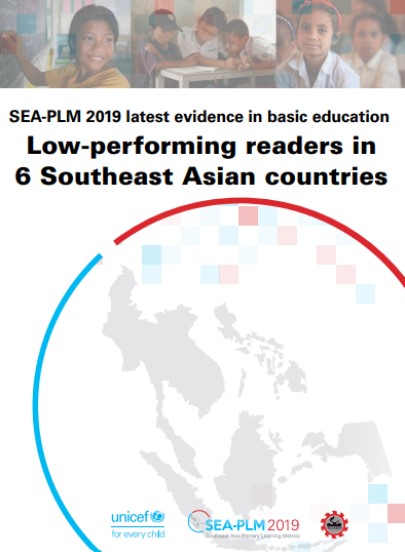
SEA-PLM 2019 latest evidence in basic education: Low-performing readers in 6 Southeast Asian countries
This publication is the second in a series of regional thematic studies initiated by the SEA-PLM Secretariat—SEA-PLM 2019 latest evidence in basic education.
This paper profiles children who are considered to be low reading performers in their respective countries with analyses of what these children can do and explains how they are distributed throughout the region. It then explores how systems and schools support low-performing children based on SEA-PLM data.
This paper looks at potential solutions by investigating the characteristics of children who demonstrate academic resilience—performing well despite coming from a disadvantaged background. The findings from the study contribute to policy recommendations on how low-performing children can be better supported to reduce the risk of students being left behind academically across basic education.
Appendix B: Reading proficiency scale, statistical tables and model characteristics
Appendix C: SPSS and Mplus syntax
Recommended citation: UNICEF & SEAMEO. (2021). SEA-PLM 2019 latest evidence in basic education: Low-performing readers in 6 Southeast Asian countries. United Nations Children's Fund (UNICEF).
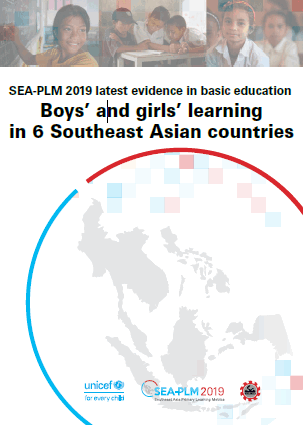
SEA-PLM 2019 latest evidence in basic education: Boys’ and girls’ learning in 6 Southeast Asian countries
This publication is the first in a series of regional thematic studies initiated by the SEA-PLM Secretariat – SEA-PLM 2019 latest evidence in basic education.
This paper delves deeper into the SEA-PLM 2019 database to examine learning and context disparities between boys and girls and their differential effects in the six participating countries of Southeast Asia.
The main findings can contribute to ongoing discussions and efforts in Southeast Asian countries to address equity gaps in learning between boys and girls and improve the responsiveness of education to the learning needs of girls and boys.
Appendix B: Statistical tables
Recommended citation: UNICEF & SEAMEO. (2021). SEA-PLM 2019 latest evidence in basic education: Boys' and girls' learning in 6 Southeast Asian countries. United Nations Children's Fund (UNICEF).
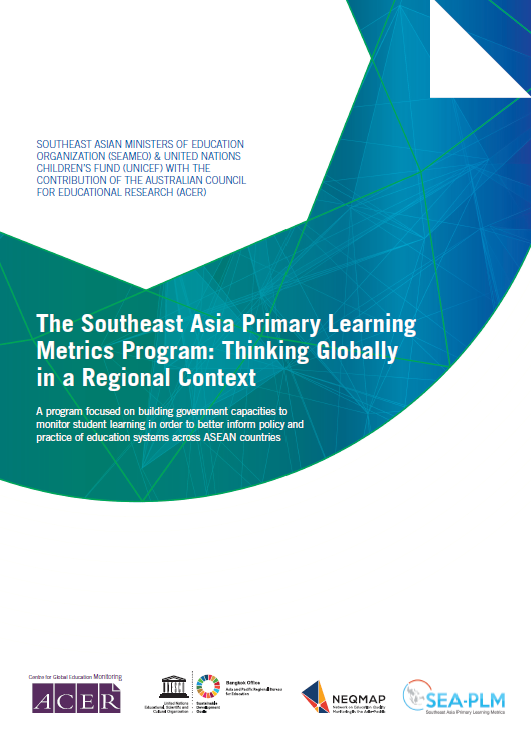
The Southeast Asia Primary Learning Metrics Program: Thinking Globally in a Regional Context (2019)
This publication is the third in a series of topical case studies initiated jointly by the Network on Education Quality Monitoring in the Asia-Pacific (NEQMAP) at UNESCO Bangkok and the Australian Council for Educational Research, Centre for Global Education Monitoring (ACER-GEM).
It provides a record of programme activities to date. It describes the programme's distinguishing features, goals and objectives as it moves into its first cycle of data with reporting planned for 2020. Key lessons learnt from the program's activities are examined, which may have important applications for other countries in developing large-scale assessment programs. The paper concludes with a reflection of how the SEA-PLM program constitutes a critical component of participating countries' SDG reporting requirements and offers a new regional tool to better respond to the changing needs of students in the 21st Century.
Recommended Citation: UNICEF & SEAMEO. (2019). The Southeast Asia Primary Learning Metrics Program: Thinking globally in a regional context. Camberwell, Australia: Australian Council for Educational Research.
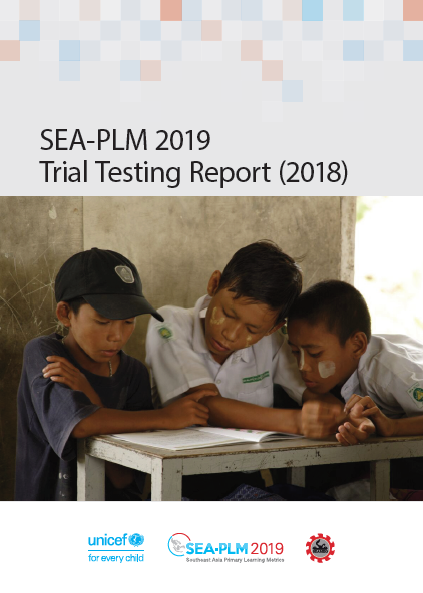
SEA-PLM 2019 Trial Testing Report (2018)
This working paper outlines the main results from the tests, questionnaires and procedures experimentation in the participating countries. Technical operations and implications for the preparation of the main survey are highlighted in the document and point out lessons learnt to engage the main survey phase.
Recommended Citation: UNICEF & SEAMEO. (2018). SEA-PLM 2019 Trial testing report. Bangkok, Thailand: United Nations Children's Fund (UNICEF) & Southeast Asian Ministers of Education Organization (SEAMEO) - SEA-PLM Secretariat.


